Andrew Reed Lecture 2019 — Our Planet, Our Responsibility
Back‘What each one of us does in the next few years will determine what happens in the next few thousand years.’ Sir David Attenborough
Our biennial Andrew Reed Lecture was held at the Royal Geographical Society (with IBG) in Kensington. In the hallowed Ondaajte Theatre - where the likes of Darwin, Shackleton, Livingstone and Scott are memorialised - our guest speaker, Dr Keith Scholey, captured the hearts and minds of the 480 guests, with some help from world-renowned, natural historian, Sir David Attenborough.
Dr Scholey, an Old Reedonian who left Reed’s in 1975, is the co-founder of Silverback Films, the company that produced the award-winning ‘Our Planet’ series for Netflix. As a zoologist, who also headed up the BBC Natural History unit working very closely with Sir David, Keith was well qualified to deliver his thought-provoking lecture, ‘Our Planet, Our Responsibility’.
This topic so aptly reflected the reason why we hold this biennial event: to celebrate our Founder, Rev. Dr Andrew Reed, and to reinforce the values on which he built our School. Keith definitely sparked our curiosity and reminded us of our responsibility to our planet.
Based on science and factual evidence, Keith was able to speak with authority and credibility about how climate change impacts all living creatures and how the habitats that make up our planet are connected and reliant on each other. The extraordinary diversity of our ecosystem depends on these finely-balanced global connections.
Keith’s passionate delivery of some very real (and often disturbing) statistics and footage had the audience hanging on his every word. At the same time he drove home the message that we all need to take action against climate change in whatever way we can. If we don’t, then the results will (not could) be catastrophic, like the mass extinctions of the Permian and Triassic periods. However, it was not all doom and gloom! Keith recognised that although there is not much time, we can still act and, if we act quickly, we can begin to reverse our impact on the natural world, as evidenced by the international communities’ response to the whaling crisis in the 1980s.
To show greater responsibility, Keith pointed out that significant changes need to be brought about by governments and officials, such as levying substantial carbon taxes on industry and investing heavily in clean energy sources. However, he made suggestions, both in the presentation and through some insightful questions posed by the audience, as to small but key actions the Reed’s community could take which, if multiplied across the region, country and world, would still have a major impact.
For example, consider what we eat: cut down on our red meat consumption in particular; lessen our reliance on single-use plastic; be proactive consumers and think about the provenance of our purchases before we buy; but probably, and most importantly, use our voices and votes wisely to exert pressure on those who make the big decisions. It is up to us to be curious and responsible enough to take action.
It was then over to Sir David Attenborough to sum up, as Keith allowed the audience to watch and listen to the speech Sir David gave to world leaders at the United Nations in September - a very powerful way to end the presentation.
As a School, we understand we have an important role to play: not only ensuring we have a strong sustainability policy that is supported by everyone in the School community but also educating each and every one of our pupils about the challenges that lie ahead, and equipping them with the knowledge and critical thinking skills to address them.
Our green initiatives already include banning single-use plastic bottles, regular ‘meat free Mondays’, paper recycling, motion-sensitive lighting and a pupil-led environmental committee. We will continue to do more and have recently pledged to support the Woodland Trust’s ‘Big Climate Fightback’ to plant a substantial number of trees across the School’s site.




